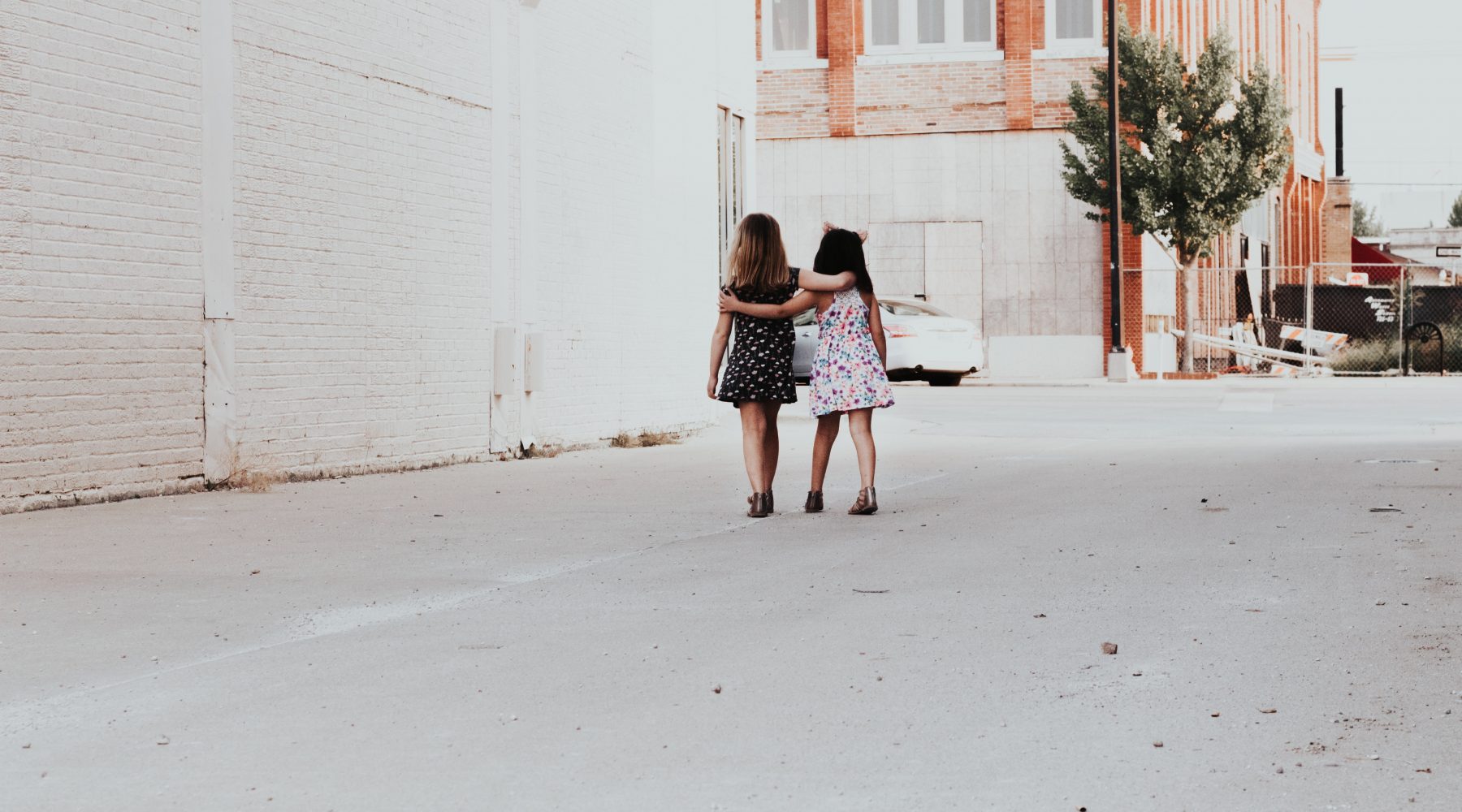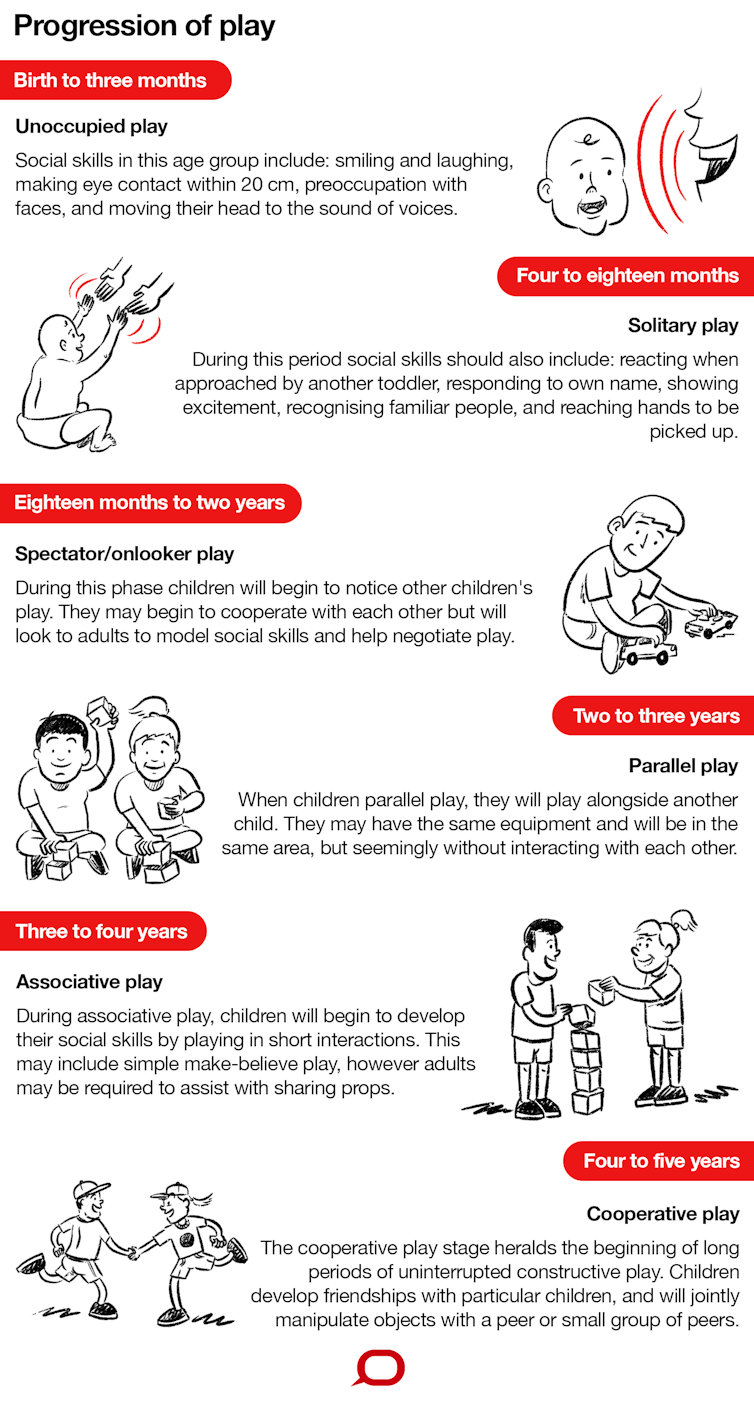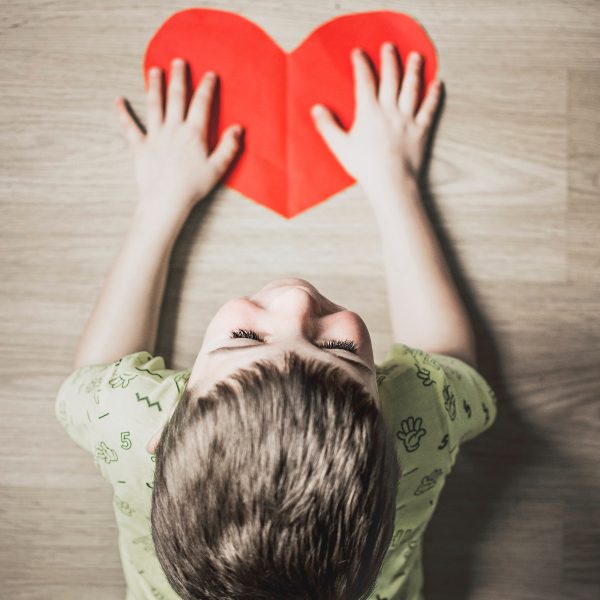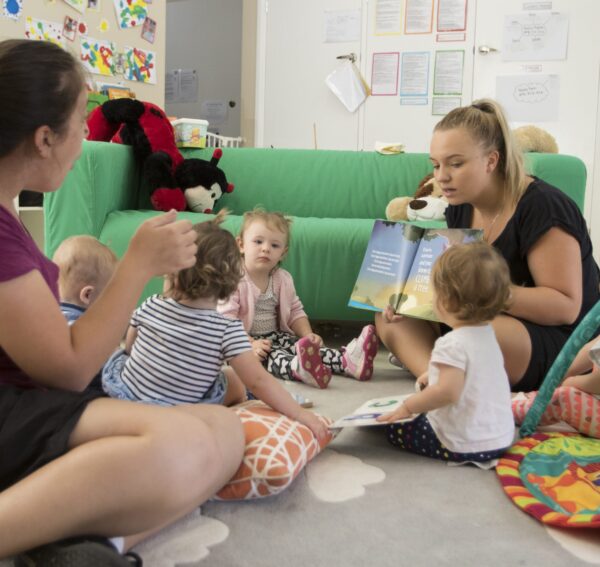How parents can help their young children develop healthy social skills

As the new year dawns, parents likely turn their thoughts to their child and new beginnings they may experience as they enter an early childhood education and care centre or preschool. Naturally, it’s a time of reflection on the previous year, and excitement about the possibilities for the new year to come.
Parents might reflect on friendships their child makes in the coming year. Making friends is not always instinctive for a young child. Learning to make friends is part of the social development curriculum in early childhood.
Social development skills are just as important as cognitive skills when learning. In recent studies, positive social skills are highlighted as key predictors for better outcomes in adulthood. It’s important for parents to be aware of ways to ensure positive social development skills in their young child.
Parents can begin by looking for interpersonal people skills, such as empathy, listening and communication skills. This will help your child transition into the next stage of their educational journey.
Is your child’s social development on track, at risk or vulnerable?
The Australian Early Development Census (AEDC) researches longitudinal data about the five important learning domains for a young child. The domains are:
- social development
- physical health and well-being
- emotional maturity
- language and cognitive skills
- communication skills and general knowledge.
Each domain is essential for learning how to build friendships, though social development is the central one. The following table outlines what is considered developmentally on track, at risk or vulnerable in the social competence domain.

After reading this table, if you feel your child is developmentally at risk or vulnerable, there may be several reasons for this. Be guided by the educator at your preschool or early childhood education and care centre centre when deciding which service might best support your child to develop healthy social skills.
To help you, there are a broad range of services available. These include art and music therapists, dietitians, occupational therapists, speech therapists, physiotherapists, audiologists, and child counsellors.
Making friends through the stages of play
There is a range of research about stages of play a young child engages in when they’re learning to make friends. According to brain development research, a young child begins to develop pathways in their brain for social skills from birth.
According to research, there are six stages of play with associated social skills. These are assessed in the early childhood curriculum. The following stages and social skills are approximate and to be used as a guide only:

Understanding some of these key indicators of social skills required to for play will help you consider their ability. Take time to observe your young child’s social interactions in a range of settings. Watch them at home, with family and friends, as well as in their preschool or early childhood education and care centre. This may help you determine if your child is engaging socially during play to make friends.
What’s next?
When a child moves from one educational setting to another, we call this movement a transition. Positive social development skills are an asset for your child during this time. Educators at both educational settings will work in partnership with you, and each other, to make sure the transition is as smooth as possible.
Essentially there are some key indicators which will help children during transitions: self-care, separating from parents, growing independence, and readiness to learn. As parents you can:
- familiarise your child with the new environment
- engage in active listening as your child expresses their thoughts and feelings about starting in a new learning environment
- ensure children start the new year with all required equipment recommended by the centre or school
- arrange to meet other people starting in the new year and practice turn taking, listening, asking questions and asking for help before the new year begins.
This will support development of social skills for your young child and help them make new friends more readily.![]()
Laurien Beane, Course Coordinator, Queensland Undergraduate Early Childhood, Australian Catholic University
This article is republished from The Conversation under a Creative Commons license. Read the original article.
Popular

Workforce
Policy
Quality
Practice
Provider
Research
ECEC must change now, our children can’t wait for another inquiry
2025-07-02 07:47:14
by Fiona Alston

Practice
Provider
Quality
Workforce
Leading with Curiosity: How distributed leadership is redefining the future of early childhood education
2025-07-03 07:42:07
by Contributed Content

Events News
Workforce
Marketplace
Practice
Quality
Provider
Research
An exclusive “Fireside Chat” with ECEC Champion Myra Geddes
2025-07-01 11:25:05
by Fiona Alston











